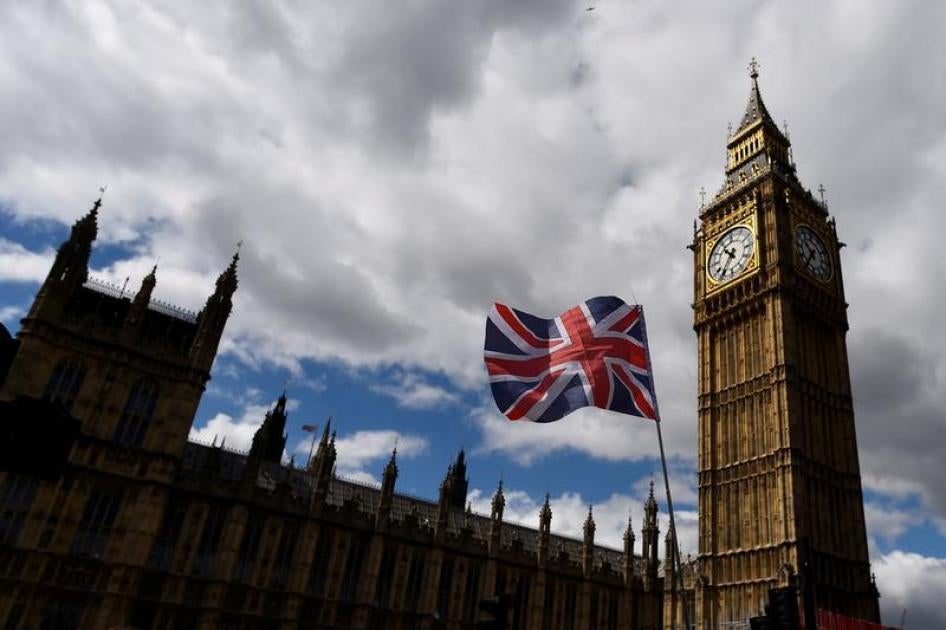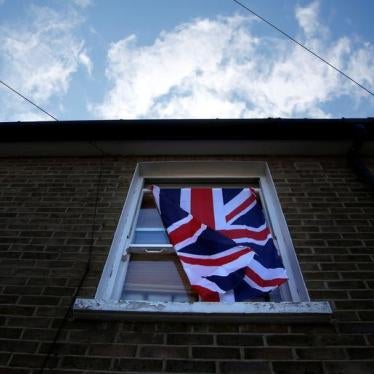The United Kingdom awoke this morning to another political earthquake: Instead of an expected victory for the ruling Conservatives, no party garnered enough seats in Thursday’s election to control Parliament.
While the Conservatives aim to form a working coalition with a smaller party from Northern Ireland, the country faces uncertainty about its future direction, including in relation to UK’s decision to pull out of the European Union.
In times like these, human rights are vital. They offer a framework for ensuring the government protects the rights of everyone in the country. With the rule of law, this means that if the government does trample on rights, people have a way of remedying the situation.
But judging from the comments by Prime Minister Theresa May two days before the poll, and the regular drumbeat of negative media coverage, you would think human rights are a dangerous and alien construct. May wrongly suggested human rights law could stand in the way of an effective response to terrorism, despite having praised the importance of human rights after the Westminster attack.
In truth, human rights law protects everyone and ensures that when the state responds to threats, it does so in way that is consistent with core values, the values that armed extremists want us to set aside.
May has attacked human rights before, when she was home secretary. And it’s not just Conservatives – previous Labour government ministers have also been guilty of doing the same, including successive home secretaries and Prime Minister Tony Blair. Human rights seems a convenient scapegoat in the face of political criticism or pressure to act.
But it shouldn’t be this way. Human rights are bedrock British values – not a foreign menace. Winston Churchill helped inspire the European Convention on Human Rights, the region’s landmark rights treaty and a British Conservative politician was one of its primary drafters. Many of the core rights in the convention reflect long-standing principles of English law.
The Human Rights Act, incorporates the European Convention on Human Rights into domestic law in 2000, allowing ordinary people to secure their rights through domestic courts, instead of needing to go to the European Court of Human Rights in Strasbourg. It has helped thousands of people secure justice and fair treatment.
Whoever forms the next government should ensure that as the country faces the challenges of the months ahead, including the start of Brexit negotiations, that the policy response and the political debate is guided by the compass of human rights – of equality, dignity, and respect.
|
Dispatches
In Uncertain Times, the Compass of Human Rights is Vital
New Government in UK Should Defend Human Rights
Your tax deductible gift can help stop human rights violations and save lives around the world.
Region / Country
Tags
Most Viewed
-
June 3, 2025
“They’re Ruining People’s Lives”

-
January 25, 2024
“We’re Dying Here”

-
November 25, 2019
A Dirty Investment

-
April 27, 2021
A Threshold Crossed

-
November 19, 2012
Losing Humanity





